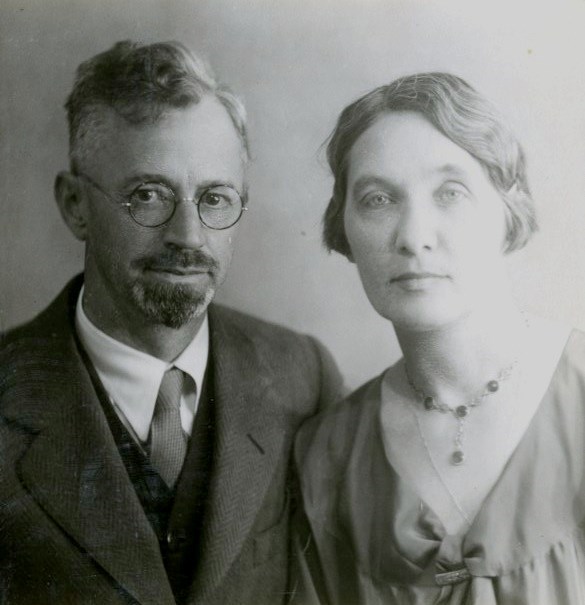Social media websites like Facebook have dominated our digital lives for years, but many users are now looking for alternatives. Social media websites like Facebook often come with privacy concerns, algorithm changes, and ad overload. Social media websites like Facebook might not suit everyone's needs anymore. Social media websites like Facebook still have massive user bases, but fresh options are gaining traction. Social media websites like Facebook alternatives offer different approaches to online connection. In this guide, we'll explore the top social media websites like Facebook that provide better privacy, niche communities, and more control over your digital experience.

1. Minds: Open-Source Facebook Alternative
Minds emerged as a direct response to Facebook's data practices, offering a transparent, open-source platform that rewards users for their engagement. Unlike traditional social media websites like Facebook, Minds operates on a different philosophy that puts user privacy first.
- Key features:
- Chronological feed without secret algorithms
- End-to-end encrypted messaging for private conversations
- Minds token cryptocurrency rewards for content creation
- Open-source code that anyone can audit for security
According to research on Facebook alternatives, Minds has gained significant traction among users concerned about data privacy and algorithmic manipulation.

2. Vero: Ad-Free Social Experience
Vero offers what many social media websites like Facebook promised but never delivered: a clean, ad-free experience with chronological posting. This platform has attracted celebrities and creatives who want a more curated social space.
- Why Vero stands out:
- No advertisements or sponsored content
- Connection categorization (close friends, acquaintances)
- High-quality multimedia sharing capabilities
- Premium design and user interface
Vero's approach to social networking focuses on authentic connections rather than maximizing screen time through addictive algorithms.

3. Use Assembo.ai to Create Custom Social Media Content
Assembo.ai helps content creators and businesses stand out on social media websites like Facebook and their alternatives. This AI tool can generate professional product photos and marketing materials without expensive photoshoots.
- How it works:
- Upload your product images
- Choose from various styles and backgrounds
- Generate professional-quality social media content
- Download and use across all platforms
You can try Assembo.ai to level up your presence on any social media platform with visually appealing content that captures attention.

4. Diaspora: Decentralized Social Networking
Diaspora represents a fundamentally different approach compared to social media websites like Facebook. This decentralized platform operates through independently run servers called pods, giving users control over their data storage location.
- Decentralized features:
- Choose your pod based on privacy preferences
- Aspects system for organized contact management
- No central corporation controlling your data
- Open-source and community-driven development
The decentralized structure of Diaspora means no single entity can exploit user data for advertising or other purposes, addressing key concerns with traditional social media.

5. Telegram: More Than Messaging
While primarily known as a messaging app, Telegram has evolved into a comprehensive social platform that rivals social media websites like Facebook. With over 500 million active users, it offers channels, groups, and broadcast capabilities.
- Social features:
- Public channels with unlimited subscribers
- Group chats with up to 200,000 members
- Cloud-based media sharing with large file support
- Secret chats with end-to-end encryption
Telegram's rapid growth, with 5-year search growth of 241%, shows how messaging apps are expanding into full social networking territory.

6. Reddit: The Front Page of the Internet
Reddit offers a completely different social experience compared to social media websites like Facebook. Instead of following people, users join communities (subreddits) focused on specific topics and interests.
- Community features:
- Thousands of niche communities for every interest
- Upvote/downvote system for content quality control
- Anonymous participation options
- Karma system that rewards valuable contributions
With 632 million monthly active users, Reddit has become one of the most influential social platforms for organic discussions and community building.

7. LinkedIn: Professional Social Networking
LinkedIn has transformed from a job search site to a full professional social network that competes with social media websites like Facebook for user attention. It's where professionals share insights and build industry connections.
- Professional features:
- Industry-specific content and discussions
- Job search and recruitment capabilities
- Professional credential verification
- Business networking and B2B connections
LinkedIn's focus on professional development makes it a valuable alternative for users who want to separate their professional and personal social media presence.

8. Mastodon: Federated Social Network
Mastodon offers a unique approach among social media websites like Facebook alternatives. This open-source, decentralized platform operates through independently operated servers that interconnect in a federated network.
- Federated features:
- Server choice based on community rules and values
- Chronological timeline without algorithms
- Community-specific moderation policies
- No advertising or data collection for profit
Mastodon's federated structure allows users to find communities that match their interests and values while maintaining control over their social media experience.

9. X (Formerly Twitter): Real-Time Conversation Platform
X has established itself as a key player among social media websites like Facebook alternatives, particularly for real-time news and public conversations. The platform's short-form format encourages quick updates and discussions.
- Real-time features:
- Breaking news and live event coverage
- Direct engagement with public figures
- Hashtag-based topic discovery
- Concise communication format
With 335.7 million monthly active users, X remains a popular choice for users who want to stay informed about current events and participate in public discussions.

10. Nextdoor: Hyperlocal Social Networking
Nextdoor fills a unique niche among social media websites like Facebook by focusing exclusively on neighborhood connections. This platform helps users connect with people in their immediate geographic area.
- Local features:
- Neighborhood-specific discussions and updates
- Local business recommendations and reviews
- Community event organization
- Lost and found pet announcements
Nextdoor's hyperlocal approach addresses the need for community connection that broader social media platforms often overlook, making it valuable for neighborhood engagement.
![]()
11. Discord: Community Chat Platform
Originally designed for gamers, Discord has evolved into a general community platform that rivals social media websites like Facebook for group interactions. Its server-based structure allows for organized topic discussions.
- Community features:
- Organized text and voice channels
- Role-based permissions and moderation
- Direct messaging and group chats
- Screen sharing and video calls
Discord's 150 million monthly active users demonstrate how specialized community platforms can compete with general social networks by offering better organized communication tools.

12. Instagram: Visual-Focused Social Platform
While owned by Meta, Instagram offers a different experience from Facebook with its strong focus on visual content. For users of social media websites like Facebook who prefer visual storytelling, Instagram provides a compelling alternative.
- Visual features:
- Photo and video sharing emphasis
- Stories and Reels for casual content
- Visual discovery through explore page
- Shopping and product discovery integration
Instagram's 2 billion monthly active users show how visual-focused platforms can capture audience attention in ways that text-heavy social media cannot.
Choosing the Right Social Media Alternative
When looking for social media websites like Facebook alternatives, consider your specific needs and priorities. Each platform offers different strengths, from privacy protection to community focus or professional networking.
- Selection criteria:
- Privacy and data protection policies
- Community size and activity level
- Content format preferences (text, images, video)
- Niche interests or professional needs
- Mobile app quality and user experience
No matter if you're seeking better privacy, more meaningful connections, or specialized communities, there are numerous social media websites like Facebook alternatives available today. The key is finding platforms that align with your values and communication preferences while offering the features you need for your social media experience.
Final Thoughts
The landscape of social media websites like Facebook continues to evolve with new platforms offering different approaches to online connection. From privacy-focused options like Minds and Diaspora to community-driven platforms like Reddit and Discord, users now have more choices than ever.
These alternatives address common concerns with traditional social media websites like Facebook, including data privacy, algorithmic control, and advertising overload. By exploring these options, you can find platforms that better match your values and social networking needs.
Remember that the best social media experience often comes from using multiple platforms for different purposes rather than relying on a single service for all your social needs.
